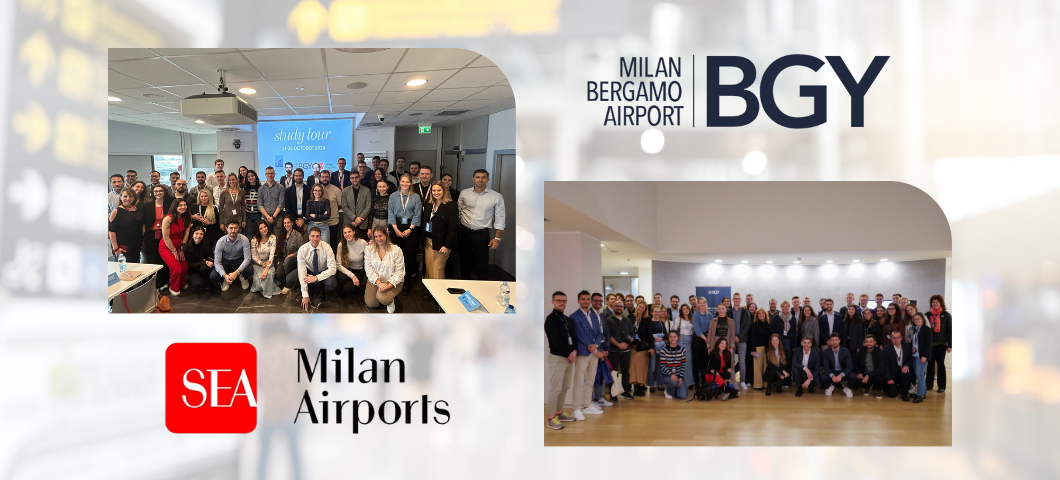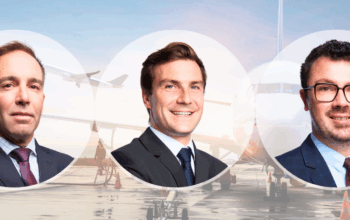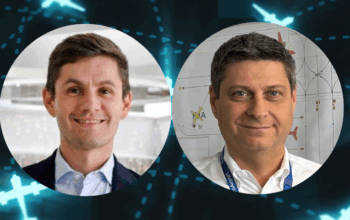
Five Minute Feature: How can Study Tours improve airport operations for all?
How can study tours – the idea of bringing professionals from other airports to visit your own – enhance your own airport operations? Over 40 young professionals from more than 20 European airports participated in the Study Tour 2024: Evolution In The Aviation Industry, organised by the ACI EUROPE Leadership & HR Forum and held in Milan Malpensa, Milan Linate and Milan Bergamo Airports. Riding on their success, we speak to Federica Azzali, Giulia Del Nero, Caterina Consiglio and Sarah Foresti of SEA Milan Airports and Alessia Gritti of SABCO, about how the study tour explored the concrete and cross-functional evolution necessary within companies, the airport community, and the broader network.
Why is it important for airports to host study tours and send staff to attend them?
It is easy to get stuck in your daily work routine and always follow the same procedures. But what if there is the opportunity to share insights and knowledge with other organisations and learn from how different airports do things?
‘If you’re going to have an exchange of ideas, the only thing you can do is to meet people face-to-face in front of a crowd who may think differently than you do.’ This quote from Ed Schultz sums up the reason why it is important to have events like the Study Tour, both for the organising and attending airports: to create a space for collaboration, to exchange best practices within the European Airports System and to boost creativity through interaction amongst people with different industry backgrounds and experiences.
The value for participating airports is the possibility to send professionals that come back enriched by the wealth of knowledge they have acquired. They return with a better understanding of the airport system as a whole, and with a broader and fresher mindset that helps with problem solving and the creation of new ideas. For the hosts, it’s a platform to showcase what initiatives have been put in place and how they have been trying to differentiate themselves at a European and International level.
The 2024 edition ‘Next Generation Meets Next Generation’, organised by SEA Milan Airports and SACBO Milan Bergamo Airport, focused on empowering young professionals, giving them the opportunity to host the event and to challenge themselves, either by presenting topics related to their area of expertise or by actively engaging into conversations and by sharing best practices. Therefore, this study tour presented the chance to delve into a range of industry topics, but it was also a showcase for the next generation to keep making an active contribution to the industry.
What were the highlights from the study tour organised by SEA Milano/Bergamo?
The goal was to make this Study Tour informative but also engaging. The past few years have brought many challenges and hurdles to the world of air transport. We reflected on how the overall operating context has changed and how we have responded to the evolution, primarily in SEA Milan Airports but more generally in our industry.
In the face of an ever-changing environment, we showed how SEA Milan Airports is stimulating its people to embrace the changing context. We reflected and shared the SEA organisational culture and some of the employee engagement initiatives: notably the People Manifesto, which encapsulates SEA’s values, attitudes, and behaviours. Attendees had the opportunity to reflect on this manifesto, to share their thoughts together, and to reason about what values our business has in common regardless of which airport they belong to. This was a good opportunity for participants to collaborate as they worked in small teams to present an initiative aimed at engaging and retaining staff members.
The second day of workshops started with a pivotal part of the Malpensa Airport ecosystem: the Cargo City. Its operations, issues and investments towards digitalisation were presented and participants were challenged to come up with an innovative way to encourage stakeholders to join the digital environment. This was an opportunity for attendees to exchange best practices and share knowledge and exchange ideas on this key issue.
Before concluding the morning, we took a few minutes to analyse the economic challenges of sustainability in our regulated context by introducing the concept of Green Finance. Rising social demand for corporate responsibility has led to the growth of green investment funds and regulatory adaptations. Attendees heard about how SEA Milan Airports is actively managing emissions through their energy strategy and the investments taking place across our airports. This presentation gave participants the opportunity to really think about the importance of more sustainable practices and gave them a good list of ideas to bring back to their home airports.
The Study Tour continued at Milan Bergamo Airport, where participants were warmly welcomed and visited the SEAS training centre. Here, attendees observed Ryanair flight simulators and gained insights into the rigorous training processes for pilots and cabin crew, offering an in-depth look at the high standards of safety and preparation in aviation.
On the third day of the workshop, attendees were given an overview of SACBO (Milan Bergamo’s operators) mission and values, sharing insights into SACBO’s operations and long-term vision. In a unique approach, young SACBO team members, who actively participated in the introduction, offered fresh perspectives on the company’s role and future direction.
With a large focus on AI, SACBO detailed how they have integrated sustainable practices into its operations and the key role of AI in achieving their operational goals. The sessions covered various AI-driven solutions that enhance operational efficiency and reduce environmental impact at Bergamo, whilst addressing the challenges involved in adopting these new technologies. Attendees also discovered how AI is optimising construction and maintenance processes. A live demo of SACBO’s Airside Driving Simulator – a cutting-edge training tool replicating real driving conditions within a controlled environment – allowed participants to see how AI can play a role in boosting operational safety. Focusing on AI in airport security, attendees explored how AI strengthens security procedures through predictive analytics, faster response capabilities, and advanced monitoring. Participants then engaged in a group session designed to encourage discussion and idea exchanges on AI applications in their respective fields, fostering collaborative learning and innovative thinking.
The program then shifted to HR, examining the impact of AI on industrial relations and strategies to balance technological advancements with workforce needs.
To close the day, the final session, “AI & Competencies,” included an analysis of a questionnaire completed by SACBO employees on AI in their professional and personal lives (which participants were also asked to complete). This session reflected on the skills required in an AI-driven environment and emphasised the importance of balancing human and artificial intelligence. The tour wrapped up with an airside visit and hands-on testing of the simulator, providing a practical conclusion to the learning experience.
What takeaways will attendees bring home to their organisation?
Participants highlighted how learning from SEA and SACBO procedures and innovations was inspirational, whilst others pointed out the benefits of networking and information sharing within the group activities.
From a professional perspective, attendees were able to immerse themselves into the daily operations at the three airports. They had the opportunity to note down innovative aspects and processes that could be a good fit for their home airports – comparing our implemented projects and procedures with their own.
At the end of the study tour, three main keywords stood out for the participants: future, evolution, and tools. These words capture core values and focuses for the airport sector and point towards a development path that guides strategic goals.
The connection between these ideas suggests a clear strategic vision:
- Future is the direction in which the sector is moving, symbolising progress, and adapting to new needs.
- Tools are the means to make this vision real, whether through advanced technology, sustainability practices, or modern management systems.
- Evolution is the ongoing process that brings about this change, blending innovation with continuous improvement.
Overall, the study tour was a major success – for both attendees and us as hosts.



